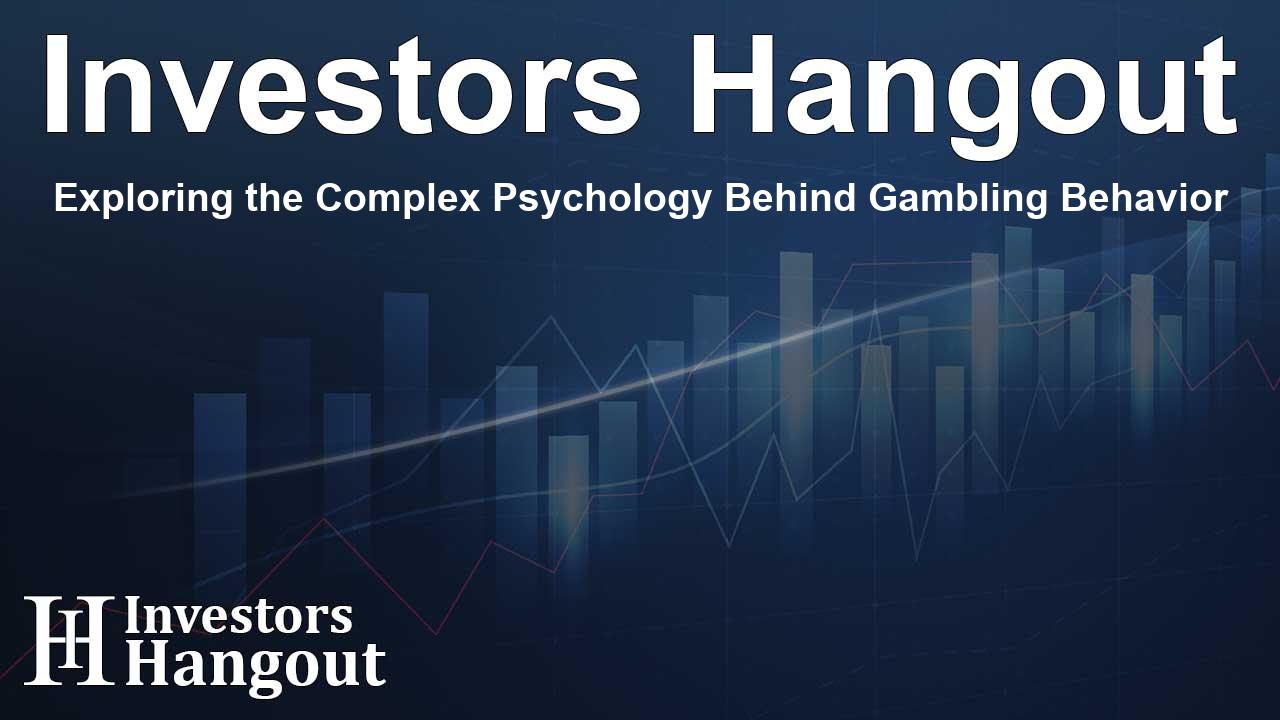Exploring the Complex Psychology Behind Gambling Behavior

Understanding the Psychology of Gambling
Gambling is a captivating mix of chance, excitement, and psychological influence. What truly drives individuals to engage in gambling, and why do some persist despite risks? Slotozilla has explored the psychology of gambling, revealing the underlying factors that influence player behavior. This comprehensive study sheds light on cognitive and emotional triggers that shape gambling decisions, providing valuable insights into the psychological mechanisms at work.
The Neuroscience of Gambling Behavior
Research indicates that gambling activates the brain's reward center, producing dopamine, a neurotransmitter associated with pleasure and motivation. Notably, recent studies show that 49% of American adults have engaged in some form of gambling in the past year. Among them, 26% visited a casino, while 20% placed sports bets. Interestingly, the phenomenon of near wins stimulates the brain similarly to actual wins, leading players to increase their bet sizes significantly. This response often quickens their betting pace as they chase the elusive thrill of victory.
Emotional Triggers and Cognitive Biases
Cognitive biases profoundly impact gambling behavior. The illusion of control leads players to believe their decisions influence random outcomes, while the gambler’s fallacy can create a false expectation that a losing streak must inevitably give way to a win. These psychological factors contribute to a compelling, yet often deceptive, gaming experience. Additionally, gambling can significantly affect emotional well-being, initiating a cycle where the initial excitement gradually gives way to stress, potential addiction, and financial issues.
The Emotional Stages of Gambling
As players engage in gambling, their emotional states typically cycle through six distinct stages:
- Initial Excitement: The thrill of winning elicits a rush of pleasure.
- Return to Natural Mood: With time, excitement diminishes, prompting repeated sessions.
- Increased Stress: Continuous gambling can lead to emotional and financial burdens.
- Loss of Enjoyment: The thrill wanes, and gambling becomes less fulfilling.
- Lowered Mood and Depression: Gambling stops providing joy and starts affecting daily life.
- Loss of Ability to Enjoy Normal Activities: Players may experience significant emotional decline.
The Impact of Gambling on the Brain
Pathological gambling can alter critical brain regions. The Ventromedial Prefrontal Cortex (vmPFC) governs decision-making and risk assessment, while the Striatum often shows heightened activation, even during losses. This reinforces the urge to continue gambling. Unlike casual gamblers who display typical brain activity, those with gambling problems often develop a rewired reward system, perceiving losses and near-misses as victories. Current estimates suggest that between 1-4% of adults in the U.S. face gambling-related challenges.
Promoting Responsible Gaming Practices
At Slotozilla, understanding the psychology of gambling is paramount for players, operators, and regulators. Emphasizing responsible gaming is central to their mission, which focuses on educating players about various influences that affect their gaming choices. By recognizing psychological triggers and cognitive biases, players can adopt strategies for responsible gambling.
Implementing limits, taking breaks, and monitoring emotional reactions are critical in maintaining a healthy relationship with gaming. These strategies can significantly enhance players' experiences while minimizing risks associated with gambling.
Frequently Asked Questions
What is the primary focus of Slotozilla's study on gambling?
Slotozilla's comprehensive study explores the psychology behind gambling, particularly the cognitive and emotional factors that influence players' decisions.
How does gambling affect the brain?
Gambling activates the reward center in the brain, releasing dopamine which is linked to feelings of pleasure and motivation.
What are the emotional stages associated with gambling?
The emotional journey includes stages from initial excitement to stress, loss of enjoyment, and potential depression.
Why do players believe they can control gambling outcomes?
This belief stems from cognitive biases such as the illusion of control and the gambler's fallacy, which mislead players into thinking their choices can affect random outcomes.
What measures can be taken for responsible gaming?
Strategies include setting limits, taking breaks, and being aware of emotional responses to maintain a balanced approach to gaming.
About The Author
Contact Ryan Hughes privately here. Or send an email with ATTN: Ryan Hughes as the subject to contact@investorshangout.com.
About Investors Hangout
Investors Hangout is a leading online stock forum for financial discussion and learning, offering a wide range of free tools and resources. It draws in traders of all levels, who exchange market knowledge, investigate trading tactics, and keep an eye on industry developments in real time. Featuring financial articles, stock message boards, quotes, charts, company profiles, and live news updates. Through cooperative learning and a wealth of informational resources, it helps users from novices creating their first portfolios to experts honing their techniques. Join Investors Hangout today: https://investorshangout.com/
The content of this article is based on factual, publicly available information and does not represent legal, financial, or investment advice. Investors Hangout does not offer financial advice, and the author is not a licensed financial advisor. Consult a qualified advisor before making any financial or investment decisions based on this article. This article should not be considered advice to purchase, sell, or hold any securities or other investments. If any of the material provided here is inaccurate, please contact us for corrections.
